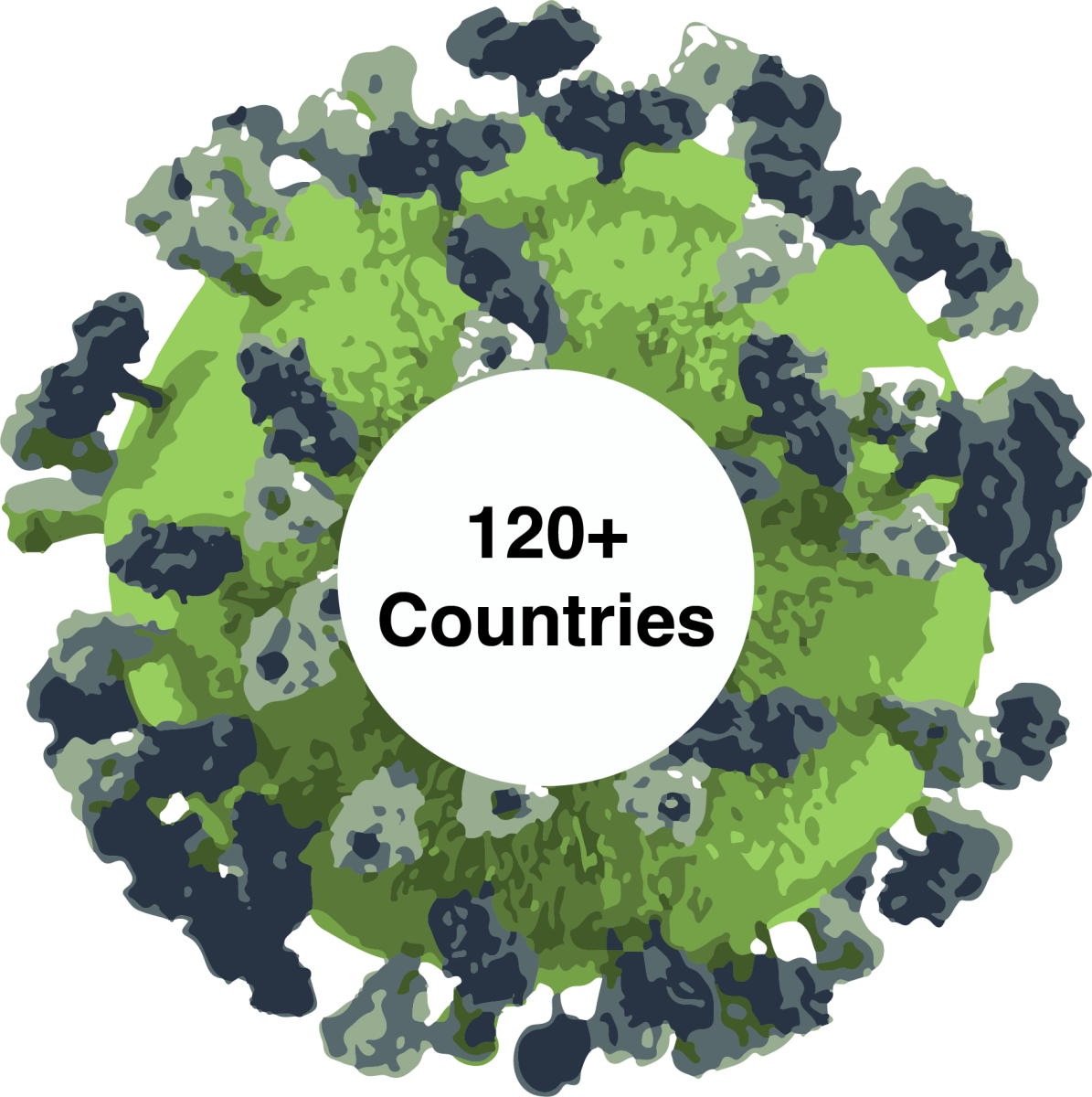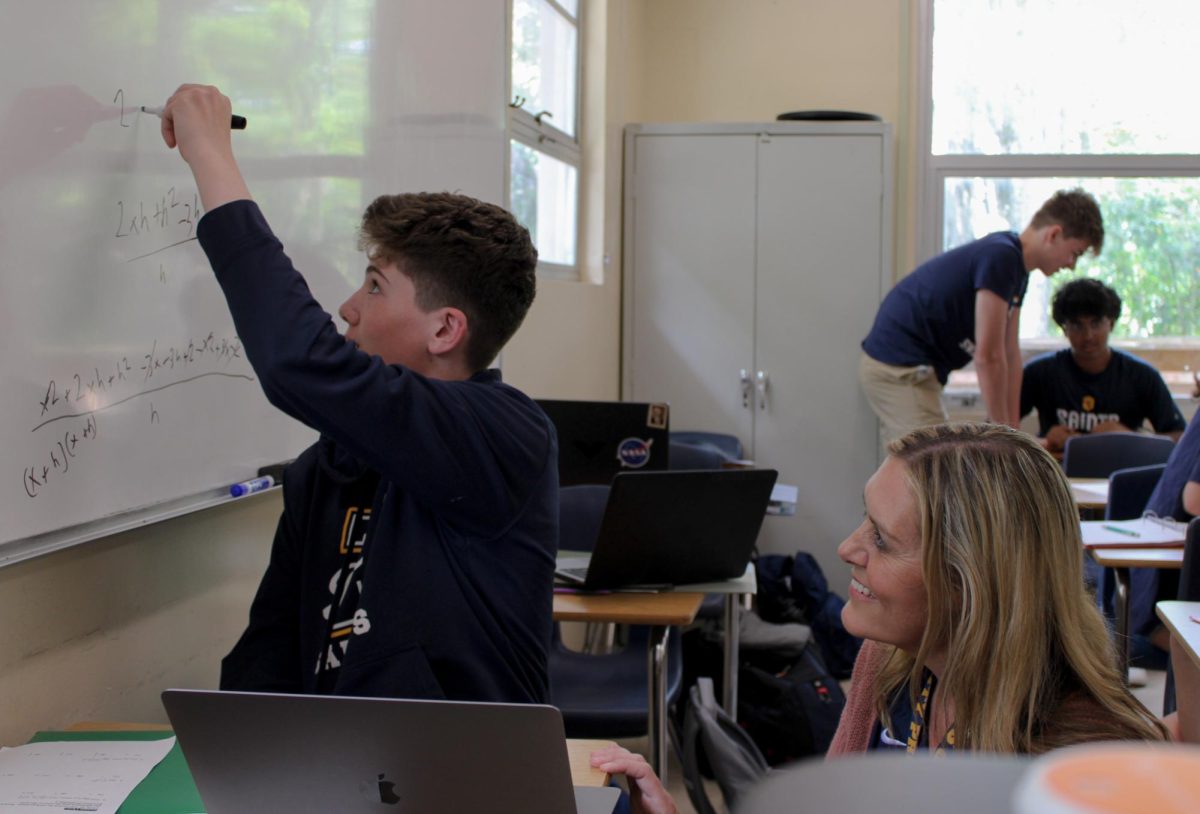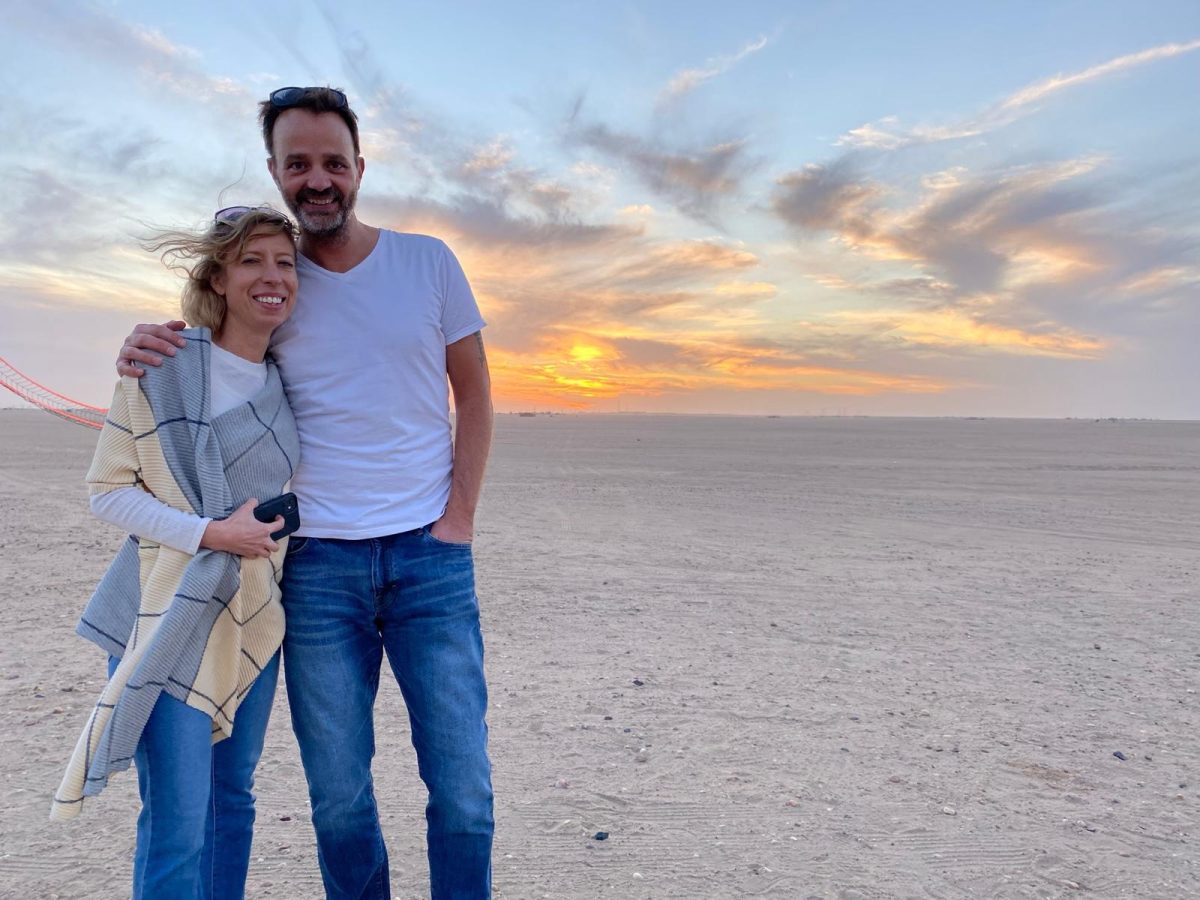In a small impoverished town of the Democratic Republic of Congo, 6-year-old Amani begins to feel tremendous pain across his body. Although unnoticeable at first, minuscule spots rapidly multiply until he feels something like red hot needles poking him. They pierce through his flesh like small knives, causing his body to ache and throb uncontrollably. Luckily — due to his parents’ rapid efforts — he fully recovers in under a week as reported by the BBC. However, others may not be so lucky.
Mpox
Long before the recent outbreak in Africa, Monkeypox, otherwise known as mpox, has been around since 1958, when first discovered in a colony of monkeys in Denmark.
On Aug. 14, this newfound disease was declared a global emergency by the World Health Organization (WHO). Spread through direct contact with scabs and open wounds, mpox, which is a double-stranded DNA virus that belongs to the Orthopoxvirus genus, is primarily a sexually transmitted infection. Although very unlikely, the virus can spread through respiratory droplets.
Symptoms of this life-threatening disease include uncomfortable blisters, also known as pustules, fever,headache, swollen
lymph nodes, muscle aches and chills.
Since its recent rise to fame, mpox has made its ways into numerous households around the world. Coming in close contact with a blister is the primary way to receive the disease, causing it to spread throughout your body.
Regions of Highest Spread
WHO records that the recent global pandemic was caused by the clade IIb strain. Since its recent upsurge in cases across Africa, the Democratic Republic of Congo has been particularly vulnerable to this infectious disease. According to the European Centre for Disease Prevention and Control, 20,000 mpox cases have been reported from 13 African Union Member States with over 500 deaths since 2024.
The extreme poverty and lack of necessary resources contributes to the sharp rise of cases within this region.
“[Africa] lacks health infrastructure,” UCF Professor of Pathology Hatem Kaseb said. “If people go untreated they cannot get adequate vaccines. This will definitely lead to the spread of the disease.”
Africa’s widespread conflict is also a factor that adds to the rise of the disease. According to the Geneva Academy research journal, with more than 35 armed conflicts, Africa ranks second in the number of wars globally.
“A lot of areas in Democratic Republic of Congo where this disease started [have] domestic unrest and a civil war,” Kaseb said. “When you have this situation, it’s very hard for the government to provide health services for the people.”
Beyond Central African countries, the newest strain of this disease has spread to Pakistan, the Philippines and Sweden via travel.
When someone is exposed to a new microbacteria from a new geographic area, they can become infected through small openings in the
body and then bring the virus back home.
“Anytime you have transmission of a sexually transmitted infection, it usually is due to microabrasion,” science teacher Scottie Smith said. “Microabrasions is where you have a tiny little non-visible cut and when you have a pustule (blister), it breaks against that cut.”
Next COVID-19?
Misinformation spreads like wildfire. Children panic. Teachers worry. The big question on everyone’s mind is “will mpox be the next COVID-19?”
Rest assured, students won’t be in lockdown once again particularly because of how restrictive the disease is.
“Mpox is not the new COVID-19,” WHO’s European director Dr. Hans Henri Kluge told CNBC. “We know how to control mpox and, in the European region, the steps to eliminate its transmission altogether.”
According to Dr. Kaseb, Mpox spreads remarkably different than COVID-19.
“This is a disease that is mainly a contact transmission,” Kaseb said. “It’s not an airborne disease like COVID-19 or even avian flu. They spread very quickly and through multiple routes.”
Although mpox is transmitted differently than COVID-19, Kaseb said some lessons learned during the 2020 pandemic can be applied to this current health crisis.
“These were lessons learned from the recent COVID: working together, providing the vaccine, having availability of the vaccines in the developing countries, especially the Central African countries,” Kaseb said.
In addition, much is known about the virus and the means to control it.
Preventative Measures
Currently, modern pharmaceutical companies have developed two effective vaccines for combating mpox.
Despite these safety measures, mpox is becoming more dangerous than ever before. It is vital to ensure the safety of others as well as yourself to be properly educated about the dangers of the virus. Although the chances of mpox spreading through respiratory droplets is considered extremely low, it is entirely possible. That means to frequently wash your hands with soap, cover your mouth when sneezing, dispose of tissues immediately, wear a surgical mask when near others, etc.
On the contrary, the most effective ways to decrease the spread and likelihood of contracting the virus includes avoiding physical contact with others, avoiding sharing the same objects and staying away from wounds.
Since mpox is such a fast-spreading disease, it may be challenging for governments to dramatically reduce the rapid growth, meaning enforcing protective measures amongst ourselves could be more effective than those of the government.
“The problem is that the US and Europe tried to ban people from traveling during COVID, and it wasn’t effective,” Kaseb said. “Protective measures were even more effective than travel bans.”
School Safety
It is extremely unlikely that students will be forced to isolate once again since COVID. To ensure this, proper guidelines must be adhered to ensure limited spread of the virus.
According to the official CDC website, the risk of contracting mpox in children and teens in the US is low although still possible.
Yet, the symptoms of children pose more serious side effects due to a weaker immune system and constant exposure to other people.
“Children are slowly building up their immunity to illnesses in the community, so tend to get unwell more often,” family health doctor Preeya Alexander said.
LGBTQ+ Community
While very little research has been recorded on the newest strain of mpox, according to the BBC in May 2022, the virus impacts the LGBTQ+ community at a higher rate.
Due to the stigma and discrimination this community often faces, especially in underdeveloped countries in Asia and Africa, people in this group sometimes struggle to receive the help they desperately need. “They are vilified in many places,”
Smith said. “If you get it in a country where it’s illegal to be gay, how are you going to talk about it? To your friends? Doctors?”
This challenge makes it much harder for [LGBTQ+] patients to receive the proper resources and vaccination needed.
“I wish the LGBTQ+ community wasn’t so marginalized when it came to healthcare,” Smith said. “It’s important for patients to feel like they can talk to their doctors … because I do think there’s that stigma and it needs to be removed in healthcare settings … everybody’s the same.”
Luckily, advocacy groups from across the world have worked together during this crucial time period.
With the new mpox variant being on the brink of arriving in the US, governments and advocacy groups are trying to work together to ensure the spread of the virus is mitigated.















